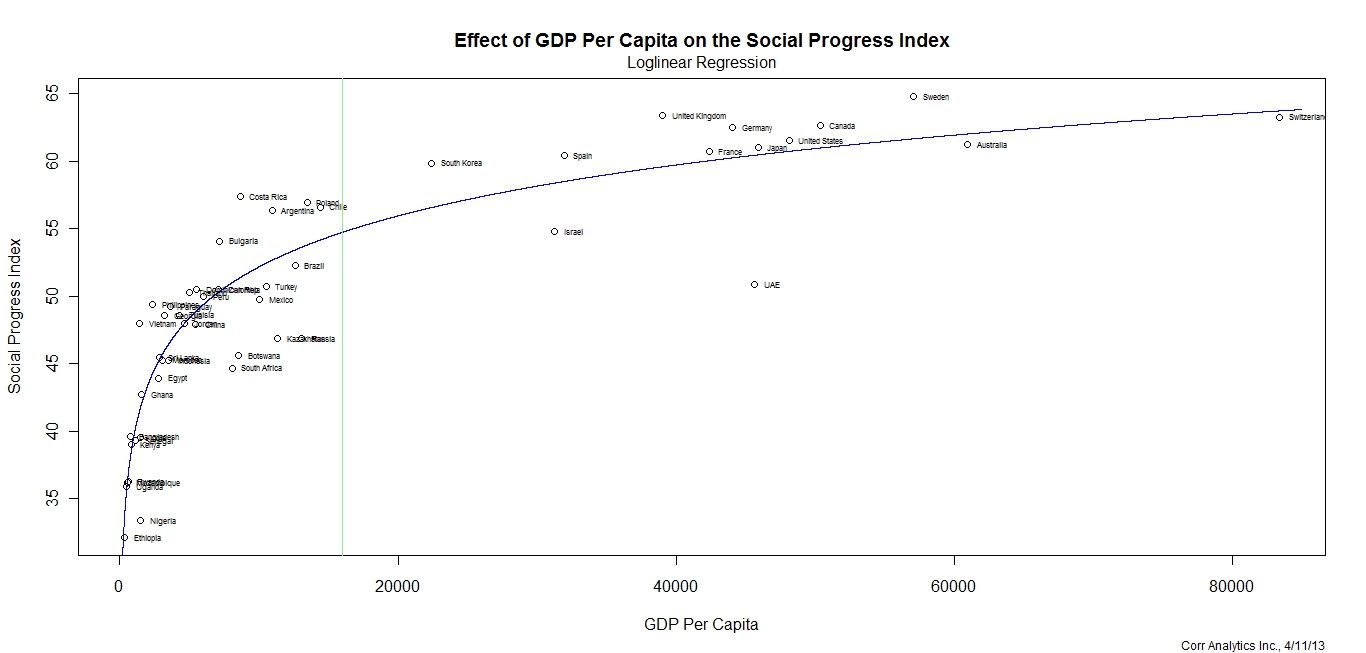Journal of Political Risk, Vol. 1, No. 1, April 2013.
By Anders Corr, Ph.D.
Social Progress Imperative, a global group that produces well-being data for 50 countries, released their Social Progress Index (SPI) today. The index compares countries not on GDP, but rather on a single quality of life metric as a function of housing, health, education, and environmental sustainability. The index is backed by Harvard Business School professors and the Skoll Foundation (WSJ).
Sweden, Britain, and Switzerland have the best Social Progress Index scores, because these countries have some of the highest GDPs per capita of the fifty countries in the index. It is no coincidence that the three lowest SPI scores – Ethiopia, Nigeria, and Uganda, have very low GDPs per capita. The best way to understand SPI is therefore to control for GDP per capita. Corr Analytics did simple regression analysis on SPI. Approximately 84% of the index is explained by gross domestic product (GDP) per capita (see technical details below). Countries with large economies relative to their populations will have more wealth that can be channeled to the basic necessities measured by SPI. Therefore the simpler standard used by economists for decades — GDP per capita — works quite acceptably for well-being. Continue reading

